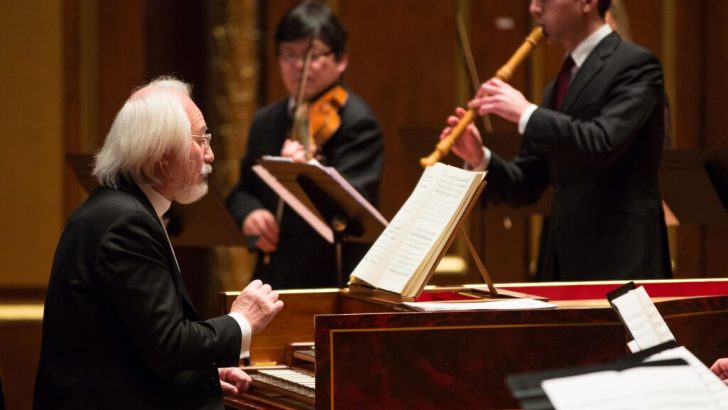In what has become a tradition, the RTÉ National Symphony Orchestra has established Good Friday afternoon at the National Concert Hall as an occasion for Bach through either one of his two Passions or something else from the treasury of his choral works. Due to my commitment to my own church’s liturgies I have had to forego these Bachian experiences.
This year promised to be different with Bach’s St John Passion advertised for Good Friday evening. Great, I thought, I will fulfil my own Passion narrative duties in the afternoon and then slip around to the NCH in the evening.
Alas, I could do neither. Bach’s Passion had been cancelled and, being of a somewhat ‘delicate’ vintage, I am ‘confined to barracks’. My mother would have said “All for Thee, Oh Lord”, but unfortunately she did not pass on her stoical fortitude!
However, just before the dreaded Covid-19 axe fell, one of the last events at the NCH was the visit of Bach Collegium Japan, a marvellous group of 18 singers and 21 instrumentalists directed by Masaaki Suzuki, who founded the ensemble in 1990.
Now regarded as one of the world’s leading experts and interpreters of Bach’s vocal music, Kobe-born Mr Suzuki graduated from Tokyo’s University of Fine Arts and Music before moving to Amsterdam’s Conservatory and then to Yale University. Steeped in the music of JSB, Masaaki Suzuki was awarded the prestigious Leipzig Bach Medal in 2012.
The Collegium brought us three Leipzig cantatas – BWV 1 (How beautifully the morning star shines) for the feast of the Annunciation in 1725, which, as it happened, fell on Palm Sunday that year; BWV 78 (Jesu, You who rescued my soul) for the 10th Sunday after Trinity in 1724; and BWV 55 (I pitiful man, I slave of sin) for the 22nd Sunday after Trinity in 1726.
This latter is the only one of Bach’s 200 plus cantatas for tenor soloist alone and it was superbly sung by English artist, James Gilchrist, who began his working life as a medical doctor. One of the arias has an exceptionally difficult transverse flute accompaniment, which was exquisitely phrased by Kiyomi Suga.
When one thinks of Bach in connection with the Mass, his mammoth B minor setting automatically springs to mind. But there are four others, known as his Lutheran or short Masses, that follow Luther’s Formula missae of 1523, thereby containing only the Kyrie and Gloria.
The Collegium obliged with the F major dating from 1737 where, besides the chorus, heard to particular effect throughout the Kyrie and the opening and closing sections of the Gloria, three solo voices have important roles.
The Domine Deus is given to a bass – here the richly sonorous German Christian Immler – with a soprano having Qui tollis peccata while Quoniam tu solus is set for an alto – the expressive French countertenor Damien Guillon at the NCH.
I didn’t particularly care for Czech soprano Hana Blažíková’s timbre but otherwise I found the evening quite splendid with the Collegium’s period instruments adding an extra air of authenticity.


 Masaaki Suzuki leading the Bach Collegium Japan.
Photo: Robert Torres
Masaaki Suzuki leading the Bach Collegium Japan.
Photo: Robert Torres 